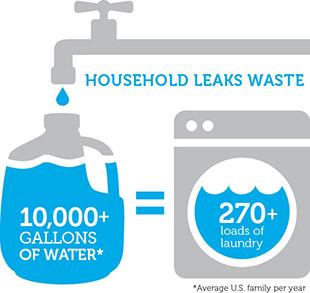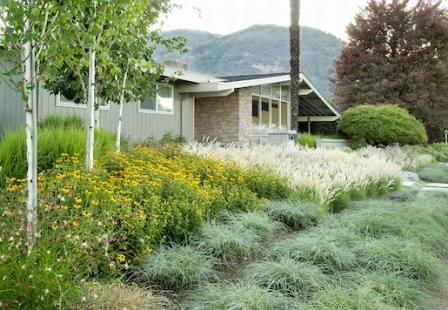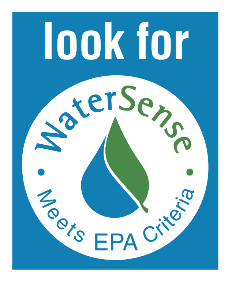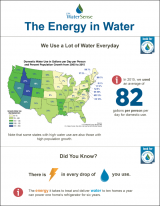Start Saving

![]() Water efficiency is the smart use of our water resources through water-saving technologies and simple steps we can all take around the house. Using water efficiently will help ensure reliable water supplies today and for future generations. Best of all, everyone can play their part in preserving our nation's water resources. With the simple steps and informational tools below, you'll find that it's easier than ever.
Water efficiency is the smart use of our water resources through water-saving technologies and simple steps we can all take around the house. Using water efficiently will help ensure reliable water supplies today and for future generations. Best of all, everyone can play their part in preserving our nation's water resources. With the simple steps and informational tools below, you'll find that it's easier than ever.
On this Page:
Save Indoors
 You've purchased some WaterSense labeled products and started down the road to savings, but don't stop there. There are lots of things you can do in your own home to reduce water use and get more from less. Just follow our simple tips below to get started!
You've purchased some WaterSense labeled products and started down the road to savings, but don't stop there. There are lots of things you can do in your own home to reduce water use and get more from less. Just follow our simple tips below to get started!
Fix a leak:
Small household leaks can add up to gallons of water lost every day. That's why WaterSense reminds Americans to check their plumbing fixtures and irrigation systems each year in March during Fix a Leak Week.
In the bathroom—where over half of all water use inside a home takes place:
- Turn off the tap while shaving or brushing teeth.
- Showers use less water than baths, as long as you keep an eye on how long you've been lathering up. Learn tips on how to Shower Better.
- If you’re dreaming of a Better Bathroom, get ready for your mini-makeover.
- Calculate how much you can save with WaterSense labeled products in the bathroom!
In the kitchen—whip up a batch of big water savings:
- Plug up the sink or use a wash basin if washing dishes by hand.
- Use a dishwasher—and when you do, make sure it's fully loaded!
- Scrape your plate instead of rinsing it before loading it into the dishwasher.
- Keep a pitcher of drinking water in the refrigerator instead of letting the faucet run until the water is cool.
- Thaw in the refrigerator overnight rather than using a running tap of hot water.
- Add food wastes to your compost pile instead of using the garbage disposal.
In the laundry room—where you can be clean AND green:
- Wash only full loads of laundry or use the appropriate water level or load size selection on the washing machine.
- To save money on your energy bills, set your washing machine to use cold water rather than hot or warm water.
Save Outdoors
 Of the estimated 29 billion gallons of water used daily by households in the US, nearly 9 billion gallons, or 30 percent, is devoted to outdoor water use. In the hot summer months, or in dry climates, a household's outdoor water use can be as high as 70 percent.
Of the estimated 29 billion gallons of water used daily by households in the US, nearly 9 billion gallons, or 30 percent, is devoted to outdoor water use. In the hot summer months, or in dry climates, a household's outdoor water use can be as high as 70 percent.
In the yard—be beautiful and efficient:
- Create a water-smart landscape that is both beautiful and efficient to give your home the curb appeal you desire.
- Timing is everything! Knowing when and how much to water allows you to keep a healthy landscape.
- Anytime is a good time for a Sprinkler Spruce-Up to check that your system is in proper working order.
- Upgrade to a WaterSense labeled controller if you have an in-ground irrigation system.
- Find a certified irrigation professionals to install, maintain, or audit your irrigation system to ensure it is watering at peak efficiency.
- Take a look at the Landscape Photo Gallery for inspirational examples of beautiful, water-smart landscapes from across the country.
Other outdoor uses—drop that hose and keep it covered:
- Sweep driveways, sidewalks, and steps rather than hosing off.
- Wash the car with water from a bucket, or consider using a commercial car wash that recycles water.
- If you have a pool, use a cover to reduce evaporation when the pool is not being used.
Drop it when it’s hot:
- Take action during the hot summer months when water use increases to curb water waste. Get the facts on water use when it’s hot.
- If a drought is declared in your area, go the extra mile to save water.
Save Energy
It takes a lot of energy to deliver and treat the water you use every day for bathing, shaving, cooking, and cleaning. Homes with electric water heaters, for example, spend one-quarter of their electric bill just to heat water. As an example, letting your faucet run for five minutes uses about as much energy as letting a 60-watt light bulb run for 14 hours.
Drops & Watts: You Can't Have One Without the Other
On average, the annual energy used to deliver and treat water for only 10 households could power a refrigerator for more than two years. In some areas of the country, that estimate is very low. Heating water for showering, bathing, shaving, cooking, and cleaning also requires a considerable amount of energy. Homes with electric water heaters, for example, spend one-fourth of their total electric bills.
One of the simplest ways to save both water and energy is to install water-efficient products. WaterSense labeled products not only save water, but can help reduce your energy bills. Installing WaterSense labeled faucet aerators in your bathrooms, for example, costs just a few dollars but could save you enough electricity to dry your hair every day for a year!
You can choose from thousands of models of WaterSense labeled plumbing products. What’s more, you can be sure the products will not only save resources, but will perform well. All WaterSense labeled products are tested and independently certified to ensure they meet EPA’s criteria for both efficiency and performance.
WaterSense labeled homes offer more savings compared to a traditional home. In addition to WaterSense labeled plumbing fixtures, these new homes include ENERGY STAR qualified dishwashers and clothes washers, if those appliances are installed when the home is built. Take a look at another infographic on how WaterSense labeled homes save water and energy.
With pervasive droughts, and high energy prices across the country, nearly everyone is looking for ways to conserve resources and cut costs. The good news is that by using a little "water sense" we can all save water, energy, and money. Start saving both water and energy! Look for WaterSense labeled products and ENERGY STAR® qualified appliances that use water.
- Make the Drops to Watts Connection(2 pp, 1.5 MB, About PDF)
Look for the Label and Save
The average family spends $1,100 per year in water costs, but can save $350 from retrofitting with WaterSense labeled fixtures and ENERGY STAR® qualified appliances. A full-sized ENERGY STAR certified clothes washer uses 13 gallons of water per load, compared to the 23 gallons used by a standard machine. That's more than 3,000 gallons of water, per year! Also, when we use water more efficiently, we reduce the need for costly investments in water treatment and delivery systems.
The WaterSense label will help you identify high-efficiency products, homes, and programs. These water efficient options provide the same performance and quality you've come to expect, but with the added benefit of water savings. WaterSense labeled products are backed by independent third party certification and meet EPA's specifications for water efficiency and performance. So, when you use WaterSense labeled products in your home or business, you can be confident you'll be saving water without sacrifice.

